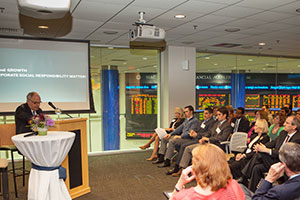American Business Law Journal (forthcoming)
Stephen Park and Gerlinde Berger-Walliser.
The multifaceted role of multinational corporations as quasi-regulators is of growing importance to international business. Corporations increasingly participate in two kinds of international rulemaking: (i) non-binding “soft” law standard setting; and (ii) self-regulation through private rules and standards. Soft law and private regulation often fill governance gaps left by incomplete and/or ineffective governmental regulation. One of the most prominent examples is sustainability rulemaking, in which corporations have become increasingly active due to their growing awareness of the directly-borne costs of environmental degradation and the potential strategic benefits of corporate social responsibility.Continue Reading
